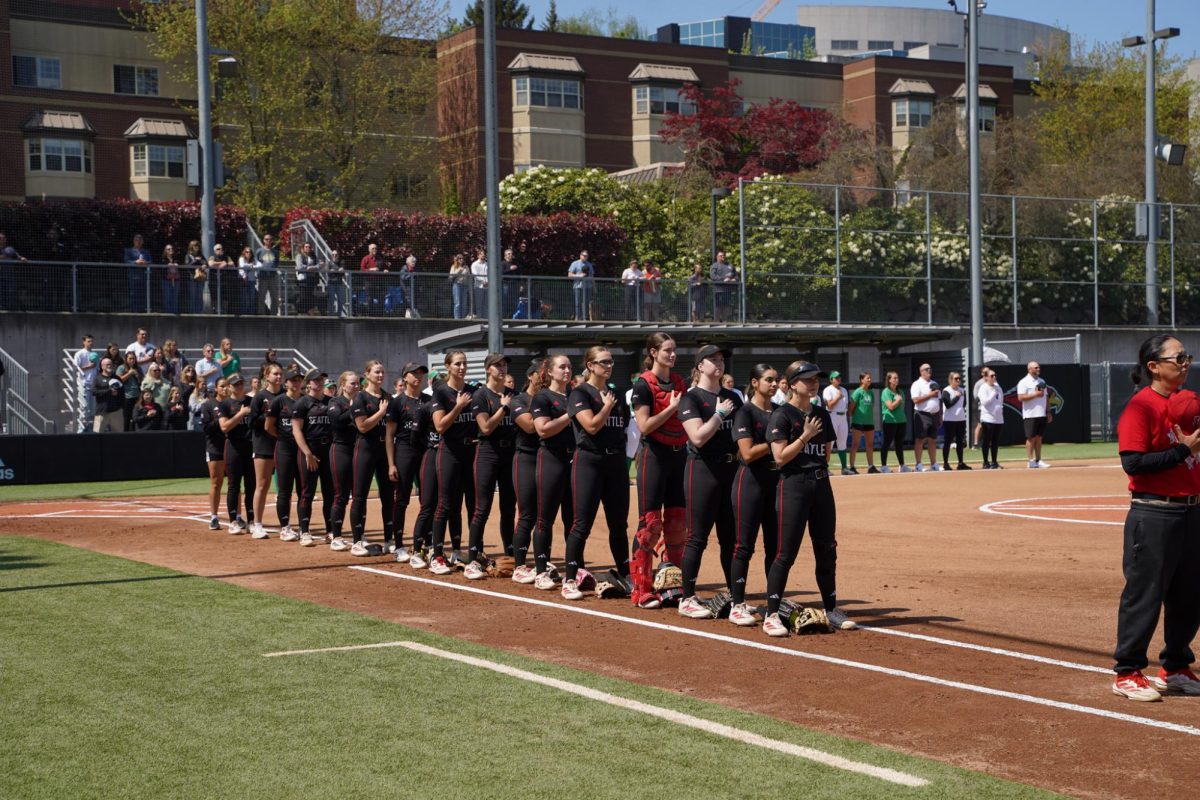The Human Performance Lab (HPL) and the Seattle University Men’s Soccer team have partnered over the last four years.
The men’s soccer team invested over $20,000 of their own funds in testing equipment and tools for the HPL to use in assessing the team’s fatigue, injury prevention, and performance enhancement. Since the soccer team funded the products, the Kinesiology Department agreed to let Sean Machak, HPL supervisor, and his interns, work with the men’s soccer team to conduct testing, research, and experiments to grow their knowledge in applied exercise science.
“What we are doing really aligns with Seattle University’s Kinesiology Department mission. We want to be a leader in the next generation and this is an opportunity that we are really excited to be able to pursue,” Machak said.
Junior men’s soccer player Julian Avila-Good said that Machak has been able to provide him with years of data and explanations behind them.
“Sean gives us presentations and explains all the data he gets so we can understand it. He breaks it down and compares our data to data he has found all around the world, for example, he compares our beep test scores to professional soccer teams.” Avila-Good gave an example of a comparison.
“My beep test scores are above average for the team, but compared to the professional level they’re just below. Sean then will tell me what I need to do to reach the professional level.”
Seattle U’s HPL is just beginning to break barriers between the kinesiology department and athletic department, something Machak is excited about helping facilitate.
“I think there’s a tendency for people who work in the applied world to be a little intimidated, maybe even skeptical, or overwhelmed by science because it’s very detailed and takes a long time to understand,” Machak said.
The kinesiology department is in the process of figuring out new ways to work together, collaboratively, with the athletics department and find new ways to prevent injuries, decrease fatigue, and improve performance.
“Like many of the other collaborations that we’re working towards I think there is definitely room and breadth for a stronger working relationship with the athletic department. At this point in time that’s probably about as much as I’m going to be able to speak to,” Sarah Schultz, Kinesiology department chair said.
On the other hand, Matchak said that within the next couple of years he sees the potential for new things happenings within the kinesiology department and HPL, in that they will not work with just the men’s soccer team, but branch out to work with the athletic department as a whole and be able to sit down with members of all sides of athletics—athletic training room personnel, team coaches, strength and conditioning coaches, and sports medicine doctors.
“I believe that exercise science, while it is a young science, will grow in increasing importance when you consider preventive health care,” Machak said.
Not much had been made official, however, progress is slowly being made on the kinesiology department’s end. By providing knowledge and expertise per their varying backgrounds, both departments will hopefully be able to help each individual athletic team successfully reach their top goals.
Kaela may be reached at
ktakei@su-spectator.com








